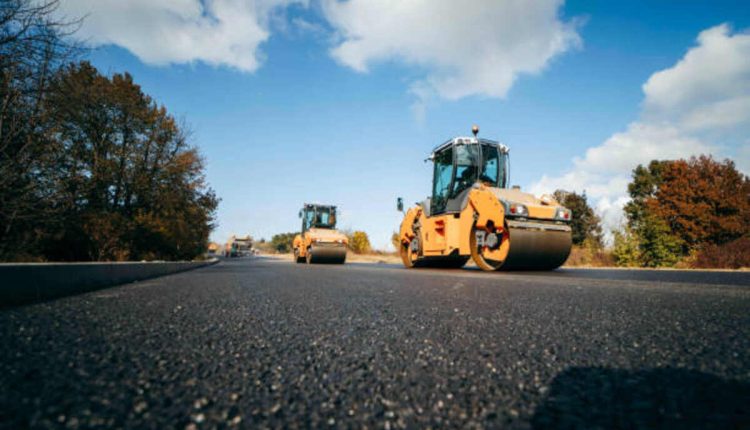A driveway can add value and character to any home, yet selecting the appropriate material for its construction can be challenging for homeowners. Best way to find the Asphalt companies Memphis.
Asphalt driveway paving is an attractive choice for residential properties due to its durability, cost-effectiveness, and ability to resist winter damage from rock salt or de-icing chemicals.
Durability
Asphalt is a robust material designed to withstand the constant wear and tear caused by vehicles. It can be laid directly over existing concrete surfaces or on freshly prepared sites; when applied directly over existing concrete structures, it must be graded appropriately so water runs off efficiently; generally speaking, a 2 percent cross slope suffices for this task.
As much as an asphalt driveway can last for decades with proper installation and care, like any surface, it needs regular upkeep to remain safe. Oil, gasoline, transmission fluid, and rock salt are all substances that can damage asphalt over time; any spillages should be cleaned up immediately upon occurring for optimal results.
Homeowners are advised not to walk or drive on newly laid asphalt surfaces for three days following installation in order to give the surface enough time to harden and process.
Consider porous asphalt when planning your driveway, as this type of paving reduces the amount of water directed toward and into the home, making it particularly suitable in humid or wet climates where excess moisture could otherwise lead to foundation issues.
Noise Reduction
Asphalt pavements offer many benefits, one being noise reduction. Asphalt’s acoustic properties help mitigate road noise that can be an irritation for urban residents and motorists. Furthermore, its smooth surface minimizes vibration from tires, reducing noise pollution further while withstanding motor vehicle pressure to save on maintenance costs and repair costs – making asphalt an excellent choice for driveways.
Noise-reducing asphalt may be a relatively new technology, but its benefits have already been demonstrated in various countries around the world. It uses innovative materials that improve asphalt surfaces’ acoustic properties and durability while simultaneously improving sustainability and contributing to healthy urban environments – benefits that may not directly add financial value but add more significant societal benefit when considered alongside any initial investment made in noise-reducing asphalt surfaces.
The success of noise-reducing asphalt lies in its unique composition. This type of pavement includes sound-absorbent components like crumb rubber to improve its acoustic properties. Furthermore, this variety of pavement has larger pores than regular asphalt, which aids in water drainage and reduces spray in wet weather conditions.
Noise-reducing asphalt requires special care in its application to maintain its acoustic properties. Special equipment may be necessary to ensure even distribution and optimal compaction. Furthermore, more frequent maintenance visits may be required to prevent clogging and maintain its porosity.
Versatility
Asphalt can be customized to your specific needs by being built in different ways depending on its expected load-bearing capabilities; for instance, contractors would likely not use the same mix in a residential driveway as they would for a distribution center, hoping heavy trucks would pass over it daily.
Asphalt’s versatility extends beyond just its driving qualities, however. Certain varieties are porous enough for water to seep right through them and filter back into the earth below, helping prevent flooding while making driving in wet weather more pleasurable for drivers.
Asphalt’s black color absorbs more heat from the sun and rapidly melts snow and ice quicker than other pavement materials, increasing driver safety during winter driving conditions while decreasing pedestrian slipping hazards. This feature makes asphalt particularly advantageous as a pedestrian pathway material.
Paving a driveway with asphalt is also more cost-effective than concrete or other alternatives due to requiring less maintenance and repairs; asphalt can last for 15 years with proper professional care, making it an excellent option for homeowners who desire durable yet low maintenance paving solutions for their homes.
Cost
Asphalt paving material is a highly cost-effective and long-lasting choice for roads, parking lots, airstrips, and driveways. Due to its affordability and easy construction and maintenance processes, asphalt is an excellent investment choice for homeowners. Furthermore, asphalt construction and maintenance time is much faster compared to concrete pavement solutions.
Attracting professional help when undertaking any paving project is wise. A qualified contractor will be able to provide a detailed bid and answer any of your queries about what options may best suit your home – porous asphalt being particularly effective for rainy climates while aiding proper drainage. Furthermore, they will assist in procuring any permits necessary for construction projects.
Asphalt driveways also benefit from being less susceptible to the freeze-thaw cycle and de-icing salts than concrete, making maintenance repairs much simpler and more affordable. This also makes the transition easier between seasons.
Asphalt is more flexible than concrete, enabling it to withstand occasional overloads from cars or trucks without suffering significant damage. As such, its flexibility prevents surface flaking problems common among concrete driveways – although any cracking lines in an asphalt driveway can still be repaired with readily available products without incurring as high an expense as repairs to concrete surfaces.
Read also: Asphalt Paving And Maintenance.


